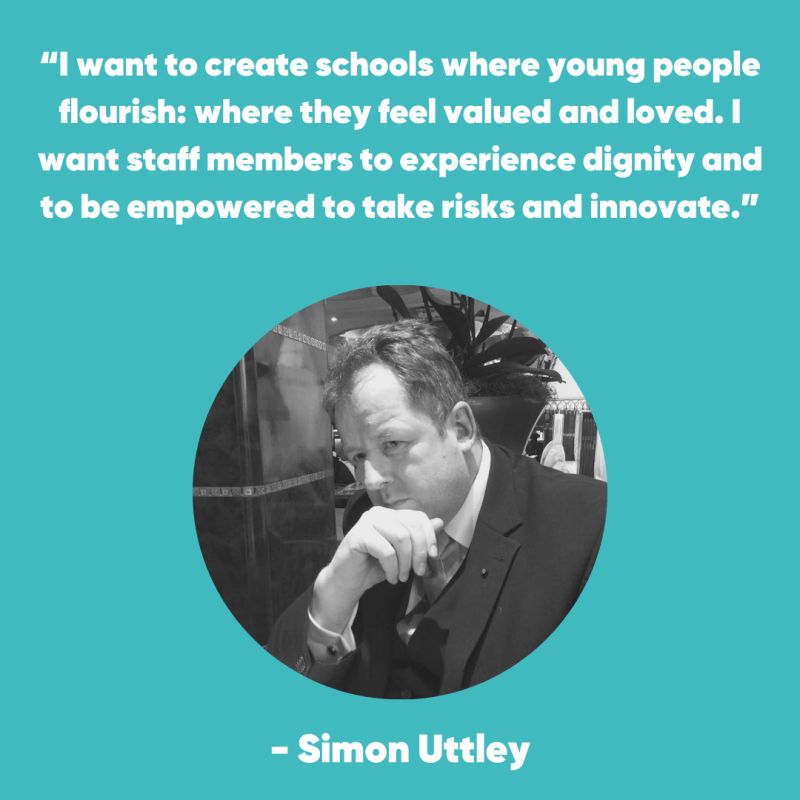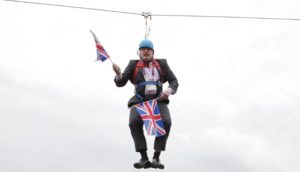Ever since my mum first sewed that 50m swimming badge onto my trunks at age 9, I have been a martyr for a medal – little wonder then that I would make education, and the celebration of achievement, my life, now having led three 11-18 Catholic comprehensive secondary schools over the past 16 years. And loving it.
Though I doubt that 9-year-old me could have ever dreamt that his – ostensibly – grown-up version would, on New Year’s Day in 2021, be found downloading not 1 but 6 certificates, proudly recognising him as a certified Covid tester.
Well of course not because that was not a language my 9-year-old self knew, and for me language – specifically the way language has been put to use throughout this pandemic – offers a lens through which I at least can reflect on my role as a school leader – running a school at a time akin to the old fairground attraction where you had to negotiate a range of obstacles while the ground beneath your feet was constantly moving.
As we passed 100,000 deaths the other week, and Downing Street Briefings continue to try and tell our story in bar charts, it is always the personal experience that cuts home – people we have known and loved – husbands, wives, grandparents, best friends, – yes and young people, too, on occasion.
What we do know is that the more vulnerable feel the impact greatest. Little wonder that the Archbishops of York and Canterbury recently reminded us that the impact is asymmetric – its rips into the homes of the poor, and disproportionately into the homes of ethnic minority families. Both, communities our Catholic schools have long and proudly served.
Where we are now is messy
Every day we are confronted with new challenges – and it is here, in the raw, with the smell of the suffering sheep, that we are called to go beyond the hubris of national announcements and help parents make sense of it. Many can cope – they have resilience. But for the parents, or parent, trying to juggle, perhaps, two jobs – or none – while educating their children with a pay-as-you-go phone, the parent doing their best for a child with additional needs, or in the family blighted by domestic violence and constant fear, they are running on empty This is a national struggle, certainly, but it is felt, raw and visceral, at the local level. Seeing my staff make welfare calls to families, day in and day out, leaves me proud – with an aftertaste of existential grief.
Never in my lifetime have I seen more clearly the impact of languages being deployed, blended, and, it must be said, sometimes warped out of shape. the politicians, wishing to model the narrative around ‘we are delivering for you’, the scientists, every cautiously managing the empirical, and the Fourth Estate – the Press -wanting to draw conclusions, create [sometimes too easy] binaries and attribute responsibility from fragments which barely allow this. As Kennedy said of Churchill, we were mobilizing the English language and sending it into battle. Supported by weekly clapping, the tooting of car horns and, I am sure, the intercessions of the much-loved Captain Sir Tom, God rest his soul.
To conclude, schools are at the sharp end of social cohesion – or the lack thereof. It may not be sufficient for families in crisis to feel that, in their child’s school, they have a place, and they are known and not judged unfairly – but it seems to me it is certainly necessary. And in the perennial quest for what is distinctive in our Catholic schools, seeing in this promotion of social cohesion a core – not add on – feature of what makes the school good – let alone outstanding – should never be forgotten. In our quest to hit the State’s metric of success and receive plaudits as ‘Outstanding’ schools, we must be mindful of the need sometimes to subvert these very metrics and replace them with those that come from our belief in Christ walking our corridors. As ‘Alpha’ Heads, we are engaged in an Omega mission.
Mark Twain said ‘Kindness is the language which the deaf can hear and the blind can see.’ This for me has been the diamond in the rough so far in my Covid 19 journey.


